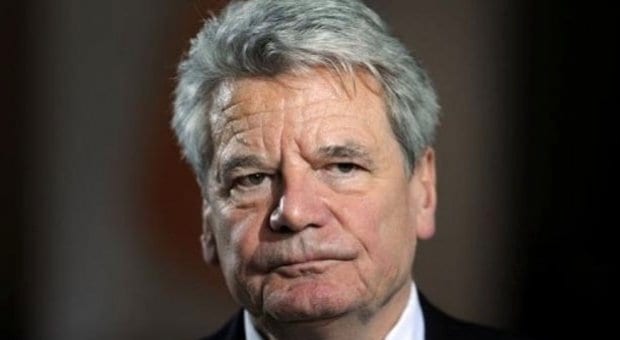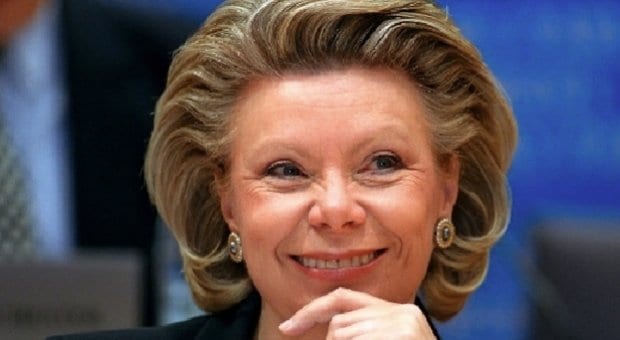
German President Joachim Gauck will not be going to the Winter Games either. Credit: rawstory.com
A day after German President Joachim Gauck said he won’t be attending the Sochi Games in February, European Union commissioner Viviane Reding has announced that she won’t be going either.
Reding tweeted that she will “certainly not go to Sotchi as long as minorities are treated the way they are under the current Russian legislation.”
Reuters notes that Gauck made his annoucement over the weekend but did not provide a specific reason for his decision not to go. According to Pink News, Gauck has spoken out against Russia’s human rights record and also in favour of LGBT rights. The report cites a statement he made at the United Nations in which he said he was “encouraged” by the discussions about LGBT rights that are increasingly taking place in several countries.
Meanwhile, the International Olympic Committee (IOC) is reportedly planning to reiterate its warning to athletes not to court controversy at the Games by making political statements or participating in protests.
In August, the IOC warned that it would penalize athletes who flout its charter rules that say demonstrations and propaganda of a political, religious or racial nature are not permitted in any Olympic sites, venues or other areas. Violations of the rule could lead to “disqualification or withdrawal of the accreditation of the person concerned.”
But a Los Angeles Times report notes that Bach revealed at a Dec 10 teleconference that the Russian government will create protest zones at the Games but did not go into detail about where they will be located.
The IOC has come under fire for saying that it doesn’t have the right to discuss the laws in the country where the Olympic Games are organized, as well as for accepting assurances from Russian authorities that everyone will be welcome at the Games.
Recently, a number of Russian LGBT groups met with new IOC president Thomas Bach, submitting a letter that said they are “gravely concerned” about the IOC’s repetition and endorsement of Russian authorities’ “vague assurances” that there’ll be no discrimination in Sochi.
The organizations also say they want “clear and detailed commentary” in response to questions they posed about the implications of the federal “gay propaganda” law for foreign and Russian citizens, as well as for the upcoming Games and beyond.


 Why you can trust Xtra
Why you can trust Xtra


